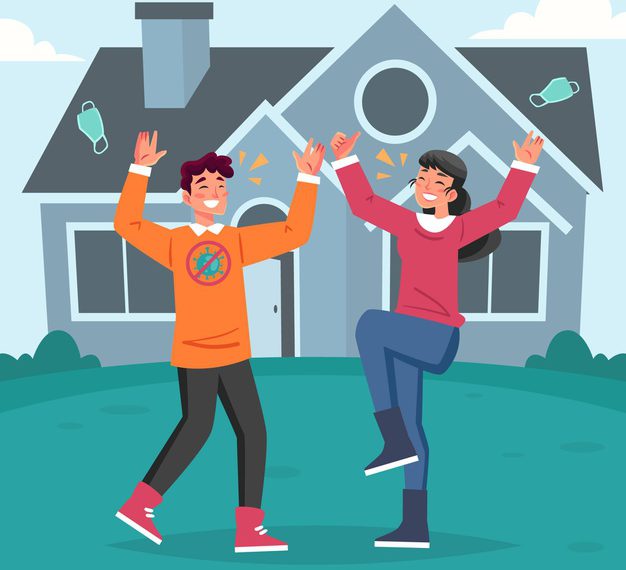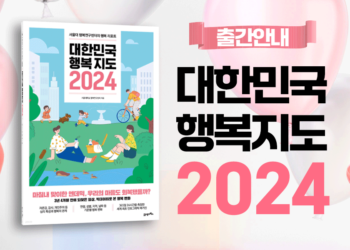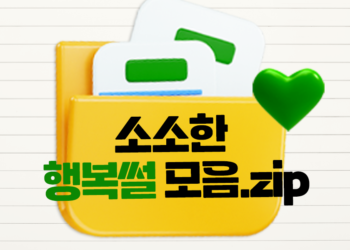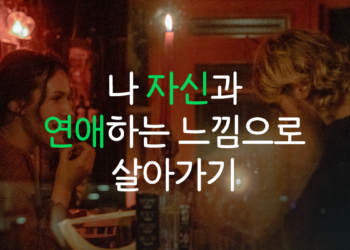Five Lessons to Remember When
Lockdown Ends
Let’s not forget what we
learned from going through a pandemic.
코로나19 위기에서 벗어난 뒤에도 기억해야 할 다섯 가지 교훈들
–팬데믹을 겪으며 얻은 교훈을 잊지 말자.
BY JILL SUTTIE | MAY 26, 2020
A lot of people I know
have been starting to wonder about life after the shelter-in-place orders have
been lifted. What will it be like? What will the new normal be?
내가
아는
여러
사람들은
자택
대피
명령(감염 확산 방지를 위하여 개인으로 하여금 집 안에 머물도록 하는 정부의 명령. 일종의 봉쇄령으로, 우리나라의 ‘사회적 거리두기’보다 그 강도가 매우 강하다.)이 끝난 후 우리의 삶에 대한 질문들을 던지기 시작하고 있다. 어떻게 될 것인가? ‘뉴 노멀’은 어떤 모습일 것인가?
The answers to those
questions will depend a lot on where you live, what your experience has been
like, and what you make of it all.
그
질문들에
대한
답은
어디에
살고
있는지,
어떤
경험을
했는지,
또
그
경험을
통해
어떤
것들을
얻었는지에
따라
달라질
것이다.
Living in a city that
imposed shelter-in-place orders 10 weeks ago, as of this writing, my own life
has been a mixed bag. I shifted to working at home pretty easily, but it’s been
hard finding a routine and avoiding distractions. I’m connected with friends
online, but I miss their physical presence. Plus, my sleep and mood have
suffered as anxiety looms over the future of our society.
글을
쓰고
있는
현재로서
자택
대피
명령이
내려진
지
10주
째이다.
그동안
나의
일상은
완전히
뒤죽박죽
되어버렸다. 재택 근무로의 전환은 매우 쉬운 일이었지만, 새로운 루틴을 만들고 업무에 온전히 집중할 수 있는 환경을 만들기는 매우 어려웠다. 친구들과 온라인으로 소통할 수는 있었지만, 그들의 실제 모습이 그리웠다. 또한, 우리 사회의 미래에 대한 걱정이 불안감으로 다가오며,수면의 질이 떨어지고 평소 느끼는 감정이 좋지 못했다.
I don’t want to negate
these feelings or ignore our losses. But, as a writer for Greater Good, I can’t
help but see some positives coming from this crisis, too. Reflecting on this
moment has been a learning opportunity for me and for all of us—a chance to
focus more on what matters and to think about living life differently going
forward.
이러한
감정의
변화를
부정하거나, 우리가 입은 손실들을 무시하고 싶지는 않다. 그러나
Greater Good의
작가로서, 나는 이 위기에서도 찾아오는 긍정적인 변화들에 관심을 갖지 않을 수 없다. 코로나19로 인한 위기상황들을 되돌아보는 것은 우리 모두에게 삶에 있어 무엇이 중요한지 더 집중해서 생각해 볼 수 있고, 앞으로 삶에 대해 다르게 생각해 볼 수 있는 좋은 기회가 된다.
Here are some lessons I
want to hold on to once sheltering in place is lifted.
자택
대피
명령이
종료된
이후에도
계속해서
지키고자
하는
교훈들이
몇
가지
있다.
1. Being with others is
key to happiness
1. 타인과 함께 있는 것이 행복의 열쇠이다.
Many of us have been
relying on social media and Zoom meetings to stay in touch with people during
the pandemic. But, while I’m grateful that I can keep up with friends on
Facebook or visit with folks via videoconferencing, these aren’t really the
same as seeing people in-person.
팬데믹
국면에서 SNS나 줌 미팅에 의존해 사람들과 연락을 취해 왔다. 페이스북이나 화상회의를 통해 친구들 혹은 다른 사람들과 이야기를 나눌 수 있는 것은 매우 감사한 일이지만, 실제로 사람들을 직접 대면하는 것과는 확실히 다르다.
Why? For one thing,
social media doesn’t always bring us closer together. People often heavily
curate what they post online to make their lives appear carefree and wonderful,
which leaves little room for sharing vulnerability—an important way to connect
with others. And, of course, there’s also a lot of alarmist news and clickbait
on social media that can wreak havoc with your happiness. If you’re looking for
deeper connection there, you’re bound to be disappointed.
왜일까? 우선, SNS가 언제나 사람들을 더 가깝게 해 주는 것은 아니다. 사람들은 SNS에 글을 올릴 때 자신의 삶이 멋지게 보이도록 하는 데에만 지나치게 집중한다. 이러한 경향은 사람들과의 연결에 중요한 또다른 방법 중 하나인 약점의 공유를 어렵게 한다. 또한 SNS에는 자극적이기만 한 게시물이나 가짜 뉴스 등도 많이 존재한다. 그 사이에서 사람들과의 더 깊은 연결고리를 찾고자 한다면 실망감을 가질 수밖에 없을 것이다.
Zoom conferencing is an
improvement, as you can see people face to face and have actual conversations.
But it’s tough to read body language on Zoom, and so it’s harder to pick up on
how people are feeling. Also, the science of touch shows us that we humans
crave physical contact, which neither Zoom conferencing nor social media can
provide. This loss is especially profound for those living alone, where the
lack of any physical affection has been particularly hard.
줌
등을
이용한
화상
회의는
사람들이
얼굴을
마주보고
실제
대화를
나눌
수
있다는
점에서
SNS보다는
조금
더
낫다고
할
수
있다.
그러나
화상
회의에서
바디
랭귀지를
이해하기란
매우
어렵고,
그
이유로
사람들이
정말로
어떻게
느끼는지
알아차리는
것이
어려워진다. 또한, 촉각에 관한 연구에 따면 인간들은 신체적 접촉에 대한 욕구가 있는데, 화상회의나 SNS
모두
이러한
욕구를
충족시켜줄
수는
없다.
신체적
접촉에서
오는
애정의
결여가
특히
더
많이
나타났을 1인 가정에서 이러한 상실감이 더 깊게 나타났다.
So, while I may
continue to use available online tools to stay connected with faraway
intimates, I’ve also gained a newfound appreciation for in-person
get-togethers. Making more time in my life to be with the people I love and to
express affection when we are together is something to bring forward from this
experience.
그래서
나는
다른
사람들과
관계를
유지
하기
위하여
온라인
매체를
계속해서
이용하는
한편
직접
사람들이
만나는
모임의
중요성을
다시금
깨달았다. 사랑하는 사람들과 함께 시간을 보내고, 함께 있는 동안 애정을 더 많이 표현하는 것은 이 경험을 통해 앞으로 나아가야 할 일이다.
In the near-term, as
restrictions lift, I hope to have more physically distant backyard visits with
friends and family. While we cannot hug, we can at least look each other in the
eye. When the crisis has passed, I plan to prioritize spending more time
gathering in groups of diverse people for concerts, sporting events,
ceremonies, dancing, and more. The emotional high and sense of connection we
get from being in the physical presence of others sharing an experience
together is inspiring and sacred. Not only will I appreciate that presence so
much more after shelter in place is over, doing so will deepen my sense of common
humanity—something that when scaled up can build a kinder, more connected
society.
단기적으로는, 규제가 풀리고 나면 가족이나 친구들의 집을 방문하는 시간을 가졌으면 좋겠다. 포옹은 하지 못하더라도, 적어도 서로의 눈을 직접 마주볼 수는 있다. 위기가 지나가고 나면, 다양한 그룹의 사람들을 만나 콘서트, 스포츠 경기, 행사 등의 활동을 하는 데 시간을 우선 많이 둘 계획이다. 경험을 공유하는 다른 사람들의 존재에서 오는 감정적 고양과 연대감은 매우 고무적이고 신성한 것이다. 자택 대피 명령이 종료되면, 다른 사람들이 존재한다는 사실 자체에 감사하는 마음을 더 가져보자. 우리가 가진 인류애를 더 깊게 만들어 주고, 더 친절하고 연결된 사회를 만들 수 있을 것이다.
2. Reducing stress is
good for everyone
2. 스트레스를
줄이는
것은
모두에게
좋다.
There have been a lot
of things to stress out about during this pandemic, for sure. The risk of
losing our jobs, becoming sick, or inadvertently infecting a beloved relative
is frightening. Having to quarantine at home has kept us from employing our
usual ways of coping with stress—like going out with friends or exercising at
the gym. And being fed a constant diet of dire and alarmist news has amplified
our anxiety and sense of helplessness, making us lose sleep.
팬데믹
기간
동안
스트레스를
받을
만한
일이
당연히
많이
있었을
것이다.
일자리를
잃거나,
감염이
되거나
혹은
자신도
모르게
주변
사람들을
감염시키게
되는
등의
여러
위험들
때문에
공포심을
느꼈을
것이다.
사회적
거리두기로
인해,
친구들을
만나거나
운동을
하는
등
흔히
스트레스에
대처하기
위해
했던
일들도
어려워졌다. 충격적인 뉴스들을 계속해서 듣게 되면서 불안감과 무력감을 느끼고, 잠 못 이루는 날이 많아졌다.
Being in a constant
state of high alert is not good for our minds or bodies—or for those around us,
either. Emotional contagion is real, which means feeding our own stress and
fear affects others, too. That’s become even clearer as so many of us find
ourselves in closer quarters with family members or roommates whose moods feed
off of each other.
경계심이
높은
상태를
계속
유지하는
것은
우리
몸과
마음에
좋지
않고,
주변
사람들에게도
악영향을
준다.
감정은
전염된다. 다시 말해, 스스로에게 스트레스를 주는 것은 다른 이들에게도 스트레스를 주는 것이다. 이는 우리가 집에 머무는 시간이 늘어나면서, 가족구성원 혹은 룸메이트와 보내는 시간이 늘어나게 되면서 더 확실하게 알 수 있게 된 사실이다.
However, one silver
lining of staying at home is that it’s forced many of us to slow down some and
find new ways to manage stress and anxiety. Perhaps you’ve finally learned to
meditate—something you’d heard was good for you but never really attempted. Or
maybe you’ve pulled out a notebook and journaled about your experience or taken
a happiness course online. Some have turned to drawing, planting a garden, or
playing a musical instrument. All of these have the potential to improve your
mental health and could be worth holding on to once you are set free again.
하지만, 집에 머물게 되면서 한 가지 희망을 발견했다. 그것은 우리 중 대부분이 스트레스를 줄이고, 불안감을 관리하기 위한 새로운 방법을 거의 반강제로나마 찾게 되었다는 것이다. 들어는 봤지만 실제로 시도해보지는 않은, 명상을 한번 해 봤을 수도 있고, 그날그날의 일기를 쓰거나 온라인 행복 강좌를 수강했을 수도 있다. 어떤 이들은 그림을 그리고, 정원을 가꾸고, 악기를 연주하는 것으로 눈을 돌리기도 했다. 이 모든 것들은 정신건강을 향상시킬 수 있는 가능성이 있고, 코로나19 위기상황이 지나간다 해도 계속해서 해 볼 가치가 있는 활동들이다.
Then there’s the one
stress-buster that beats them all: Being kind to others and helping those in
need. Ask anyone who’s volunteered at a local food bank, brought a meal to a
stuck-at-home neighbor, reached out to a lonely friend, tutored students
online, or organized their neighborhood relief group, and they’ll tell you:
Focusing your attention on others reduces your own worry and stress—a lesson
easily carried forward into the new era. Not only will helping others keep us
sane, it will also aid in the recovery of everyone impacted by the pandemic.
그리고
최고의
스트레스
해소법이
있다.
바로
타인에게
친절을
베풀고,
도움이
필요한
사람들을
돕는
것이다.
봉사활동을
하는
사람들,
온라인으로
학생들을
지도한
사람들,
또는
구호
단체를
조직한
사람들에게
묻는다면, 그들은 다른 사람들을 둘러보는 것은 자신의 걱정과 스트레스를 줄여주며, 이는 새로운 시대에도 계속 이어져야 할 교훈이라고 답할 것이다. 타인을 돕는 행위는 개인의 정신건강을 지켜줄 뿐만 아니라, 팬데믹 상황에서 영향을 받은 우리 모두의 회복에도 도움이 될 것이다.
3. Showing gratitude
matters
감사
표시는
중요하다.
It’s pretty obvious
that we should be grateful to the “essential workers” during this time of
shelter in place. Food suppliers, health care workers, delivery people, and
first responders have taken on risks to themselves for the benefit of everyone
else.
자택
대피
명령의
기간
동안
누구보다
더
고생을
했을
“필수
노동자”에게 감사를 표해야 한다는 사실은 아주 명백하다. 식품 공급 업자, 의료계 종사자, 배달원, 응급구조요원 등은 모두 다른 사람들의 이익을 위해 자신의 위험을 무릅쓴 사람들이다.
How can we possibly
repay them? By showing a little gratitude and paying the kindness forward.
어떻게
그들에게
보답할
수
있을까?
감사를
표하고,
친절함을
더
표함으로써
보답할
수
있다.
Before the pandemic,
most of us probably didn’t think twice about the workers doing these jobs. Now
that they are on everyone’s radar, it’s been heartwarming to see grateful
citizens showing their appreciation openly by making signs, clapping or howling
out their windows at night, dropping off free meals, and over-tipping service
workers. Even just saying “thank you” can go a long way toward building good
will.
대부분의
사람들이
팬데믹
이전에는
이러한
필수
노동자들에게
큰
관심이
없었을
것이다.
그러나
지금은
그들이
모두에게
주목받고
있다.
시민들이
감사를
표하고
호의를
베풀며
그들의
수고를
인정하는
모습을
보면
마음이
따뜻해진다. 단순히 “고맙습니다”라는 말 한 마디도 사람들의 좋은 의지를 북돋는 데 큰 도움이 될 수 있다.
Gratitude isn’t
something we should just show to these current heroes in our midst, though.
하지만
우리
사회
내의
영웅들만
감사를
받아야
하는
것은
아니다.
We can show more
gratitude for all of the people and things that make our life easier and
happier. Showing gratitude not only feels good, it encourages more kindness and
generosity in both gratitude recipients and anyone who witnesses the expression
of gratitude, creating a virtuous cycle. And, since sincere gratitude is a
premier social glue in both personal relationships and society at large,
offering it helps build a kinder, more compassionate society—something we
should all keep in mind.
우리
삶을
더
편안하고
행복하게
만드는
모든
사람들과
사물들에
대해서도
감사를
표할
수
있다.
감사를
표하는
것은
기분
좋은
일일
뿐만
아니라,
감사를
표하는
사람과
받는
사람
모두에게
친절함과
관대함을
불러일으키는
선순환을
만든다.
그리고
진실된
감사는
개인적
관계와
사회
전반에
중요한
사회적
연결고리가
되어
서로에게
더
친절하고
인정
많은
사회를
건설하는
데
도움이
된다는
것을
명심해야
한다.
4. We need less stuff
than we think
우리는
생각보다
필요한
것이
적다.
Before the current
shelter in place took hold, I never would have guessed how easy it is to do
without so many modern conveniences. Now that shopping at the mall, getting my
hair done, or popping into the grocery store for a single ingredient has become
impossible, I’ve realized that I’m surviving just fine.
자택대피명령이
내려지기
전,
나는
이렇게
현대문명이
주는
편리함이
없어도
살기가
이렇게
쉬울
줄이라고는
상상도
하지
못했다.
쇼핑몰에
가서
물건을
사고,
미용실에
가거나
마트에
가는
것도
불가능한지만, 나는 그럭저럭 잘 살고 있다.
It’s pretty clear that
we don’t need so much stuff or as many conveniences as we’ve become accustomed
to. The basic essentials—food, clean water, and good health, for example—are
much more important than having a manicure or buying the newest computer. Given
how many of these consumer items and activities negatively impact the health of
the planet, it makes sense to rethink our priorities and consider skipping some
to allow everyone to have the basics for survival.
많은
물건들이나
편리함은
지금
우리가
익숙해진
만큼
꼭
필요하지는
않다는
사실은
꽤나
분명하다. 음식, 깨끗한 물, 좋은 건강 상태 등 기본적인 필수품들은 네일아트를 받거나 최신 컴퓨터를 구입하는 것보다 훨씬 중요하다. 이러한 소비재들과 활동들이 지구의 건강에 얼마나 부정적인 영향을 미치는가를 고려해 볼 때, 우리가 생각하는 우선순위를 재조정하고 모든 사람들이 생존에 꼭 필요한 것들을 가질 수 있게 하기 위해 몇 가지쯤 포기해 보는 것도 생각해 볼만 하다.
Luckily, our well-being
isn’t dependent on consumer products. Studies have found that kindness and
generosity make us happier than pampering ourselves or buying ourselves stuff.
It may be hard to believe; in fact, researchers often find that people
underestimate the impacts of giving to others on their happiness.
But it’s true: We will
likely be happier and create a healthier society if we can consume less and
give more.
다행히
행복은
소비재에
의존하지는
않는다.
친절함과
관대함이
남들에게
대접받는
것이나
새로운
물건을
사는
것보다
더
행복에
도움이
된다는
연구
결과도
있다.
사람들은
종종
타인과
나누는
행동이
행복에
미치는
영향을
과소평가하기도
한다. 믿기 어렵겠지만 사실이다. 자신만을 위한 소비를 줄이고, 더 많이 나눌 수 있다면 더 행복해지고 더 건강한 사회를 만들 수 있다.
5. We are stronger when
we act together
함께일
때
더
강해진다.
As communities around
the world manage the pandemic, one thing we’ve all learned is that cooperation
matters. Only through group effort can we do something to make a difference in
the trajectory of a worldwide threat.
전
세계가
코로나19를 겪으면서, 우리 모두는 협력이 중요하다는 사실을 다시 한번 배웠다. 함께 하는 노력을 통해서만이 세계 모두가 처한 위협의 궤적을 변화시킬 수 있다.
This became crystal
clear when comparing state and national responses to the viral outbreak. Some
governments were laissez-faire in their response—or even actively punished
people who sounded the alarm. Others heeded early warnings and quickly put into
place orders to keep people at home. The latter approach, where science was
heeded and everyone pitched in to shelter in place, is what paid off in
flattening infection curves and saving lives.
협력이
중요하다는
사실은
바이러스
발생에
대한
각
정부의
대응을
비교해
보면
더
명백하게
알
수
있다.
어떤
나라들은
별다른
대응
없이
내버려
두기만
하거나,
혹은
코로나19의 위험성을 알린 사람들을 적극적으로 처벌하기도 했다. 반대의 경우, 조기에 경고를 내리고 사람들의 집합을 막는 명령을 빠르게 내렸다. 과학적으로 사고하고 모든 사람들의 감염 가능성을 낮추는 후자의 방법은 확진자의 증가세를 낮추고 생명을 구하는 데 도움이 되었다.
Of course, suffering
through this time has shown us that there is still much that needs correcting.
Not everyone has good health or health care, and many people are living at the
edge of poverty. Some people have been forced to go to work despite the risks,
and others are dying at higher rates than the general population because of a
long history of discrimination. This is unacceptable and needs changing. If the
pandemic has opened new eyes to these inequalities, then perhaps they’ll be
more likely to become part of that change.
물론, 코로나19로 고통받은 시기 동안 우리는 아직도 고쳐 나가야 할 것이 많다는 것을 배웠다. 모든 사람이 건강한 것은 아니며, 많은 사람들이 빈곤의 끝에 서 있다. 감염의 위험에도 불구하고 계속해서 출근을 해야 하는 사람도 있고, 오랜 차별의 역사 때문에 일반적인 집단들보다 더 많이 죽어나간 사람도 있을 것이다. 이는 받아들여야만 하는 사실이 아니다. 변화할 필요가 있다. 만약 팬데믹이 이러한 불평등에 대한 새로운 시각을 주었고, 앞으로 있을 변화의 한 부분을 차지할 것이다.
Seeing how willing
people were to cooperate with draconian measures for the good of all gives me
hope. It’s not easy to herd that many people in one direction, especially when
they have to sacrifice some of their personal freedoms to do it. But working
together for the common good has helped us fight the pandemic and could bode
well for solving other worldwide problems requiring cooperation—like poverty,
ethnic violence, and climate-based disaster.
모두의
이익을
위해
많은
사람들이
매우
엄격한
정부의
조치에
기꺼이
협력하는지를
보며,
희망을
발견할
수
있다.
그렇게
많은
사람들을
한
방향으로
몰아가는
것은
쉽지
않다.
특히
개인적인
자유를
희생시켜가며
그러한
조치들을
시행하는
것은
더욱
어려울
것이다.
그러나
공동의
이익을
위한
협력은
코로나19와의 전쟁에서 큰 도움이 되었고, 이후에 있을 가난, 전쟁, 소수민족 차별, 기후변화와 같은 협력이 필요한 또다른 문제들의 해결에 힌트를 줄 수 있다.
That’s why I hope we
will hold on to that lesson after we leave our homes. There is power in keeping
in mind our common humanity and our sense of interconnection. If we also
remember the importance of our relationships, resilience, gratitude, and doing
with less, we can move forward into our un-sheltered lives again with a renewed
sense of purpose and tackle some of our most difficult problems. It could be
that collective, compassionate action will be the key to creating a better
future for us all.
그렇기에, 나는 이 위기가 지나가더라도 앞서 살펴본 교훈들을 우리가 계속 간직하기를 바란다. 인류애를 가지고 상호 연계 의식을 가지는 것이 큰 힘이 될 것이다. 인간관계와 회복력, 감사, 그리고 검소한 삶의 중요성을 명심한다면, 코로나19 이후의 삶에서 맞는 어려운 문제들을 새로운 목적의식을 가지고 해결해 나갈 수 있을 것이다. 공감에 기초한 공동체주의적인 행동은 우리에게 더 나은 미래를 만들어 줄 열쇠가 될 수 있다.
※ 원문이 미국에서의 코로나19 상황을
묘사한 관계로, 국내 상황과는 다른 부분에 대한 의역이 다소 존재합니다.
원문 출처 :
https://greatergood.berkeley.edu/article/item/five_lessons_to_remember_when_lockdown_ends
[Greater Good
Magazine] Five Lesson To Remember When Lockdown Ends_by Jill Suttie
썸네일 이미지 출처:




![[연구참여자 모집/사례 지급] 자유연상 패턴과 심리적 속성 간의 관계 탐색](https://happyfinder.co.kr/wp-content/uploads/2024/05/워드프레스_연구참여자모집-360x180.png)













